There are many factors that decide if a business is good or not – so many that starting a new venture is almost always a risk no matter how experienced somebody is. However, a lot of businesses that turn out to be successful have one thing in common – they’re born from a need and they become a solution to a real problem.
But, moreover, to know the real value of your product or service, it is best if you can start with yourself – would you be your own customer; is this a solution you need?
Co.404 is the perfect example of how valuable the product or service is when it is born from the customer’s perspective.
In their case, three friends who loved traveling, volunteering, and working remotely, who were passionate about grounded life, good company, and work-life balance, and – most importantly, who were in love with Mexico – decided to create a shared living experience for location-independent workers.
Three nationalities and three different experiences with the same drive and mindset gathered around the idea of creating this work-life experience as if they were creating it for themselves. And there you go – there’s that magic ingredient.
Today, Co.404 has a team and infrastructure that knows the needs of remote workers to the core. Focusing on the quality of the experience also means constantly growing and improving, following new needs, and making space for new solutions – and Co.404 knows this.
Read below the interview we did with one of the founders Laurens, and hear more about the story behind Co.404 and its philosophy.
About Co.404 Beginnings
1. Would you tell us a bit more about your journey before opening Co.404?
Laurens: There are three of us: me, Laurens, my wife Jocelyn, and our best friend, David. I’m Belgian, my wife is Mexican, and David is from the US.
We all have our versions of how it started but mine is that I was traveling for three years on a really low budget, and I met David while I was volunteering in a hostel in Tulum.
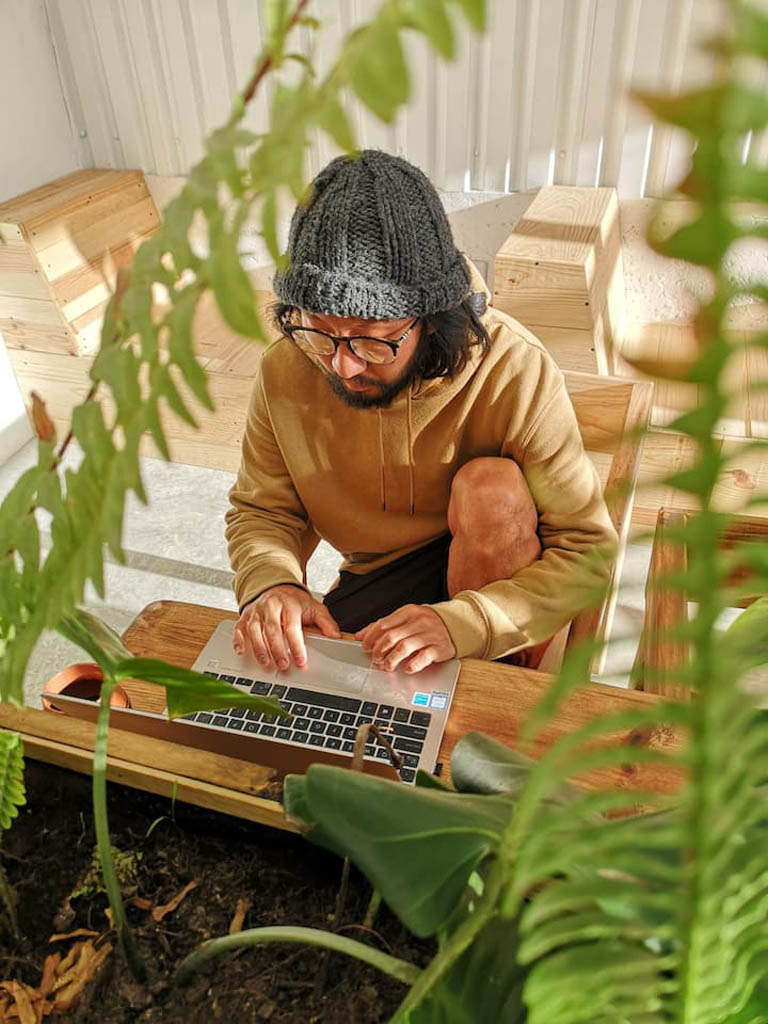
I also met my wife in Tulum and invited her to volunteer with us. We volunteered together there for about 7 months, after which David left to travel some more, and my wife and I move to San Cristobal.
We invested all our money there on an Airbnb business, but after a while, Covid came, and we had to close the Airbnb. David was in Costa Rica at the time and he also went back to the US, but then we all met again in the middle of Covid when we decided to open Co404.
2. Could you tell us the story of how Co.404 coliving was born?
Laurens: It was in the middle of Covid, and we started talking about opening a hostel together. As a traveler, I always wanted to open a hostel (like any other traveler, I suppose). So, we started talking and sharing ideas.
The idea for coworking-coliving came from the experience we had volunteering in that hostel in Tulum. While we were there, we met a lot of people working remotely on their laptops and we really liked that concept.
Some of them talked to us and shared their concerns about this lifestyle saying they always choose hostels because of the opportunity to meet other people, but how they also struggle to stay productive and focused in a hostel because it’s all oriented towards parties and going out.
So we started thinking What if we combine these two worlds?”
And we decided to do it. We sat down one night with a bottle of wine and ran the numbers and the ideas and decided it will happen. And three months later – Co404 was open. It was the 27th of March, 2021.
3. Soon after opening your first place in San Cristobal, you decided to open the second one in Oaxaca, how did that happen?
Laurens: We opened our first place in San Cristobal on the 27th of March, but we were already fully booked by the 14th of March. And all without any advertising or anything.

We got really lucky that our friend had a digital nomad blog (BucketListBri – shout out to her!), so she helped us out a lot. She asked if they could write a blog about us, and, of course, I said that would be great. It turned out she had a lot of readers so that helped us a lot.
People started reaching out to us and wanted to book, and we had only just finished the coworking, The place was still a construction site, but people didn’t care. They only cared that we had internet in the rooms and the coworking and that was enough. In the end, we opened with the constructions still under. Some guests even helped paint the chairs and stuff. We were fully booked for 11 months straight without any marketing.
So having all that in mind, we still weren’t planning to open a second location, but we were riding this wave so we decided to see what it can become.
In Mexico, there is this path that all digital nomads and travelers follow, so we saw decided to follow that as well, saw that Oaxaca is the next location from San Cristobal, and we said, “Let’s open one there and see where we can get”.
So, that same year, we went location scouting, and soon after we found one location we liked, and we opened in August.
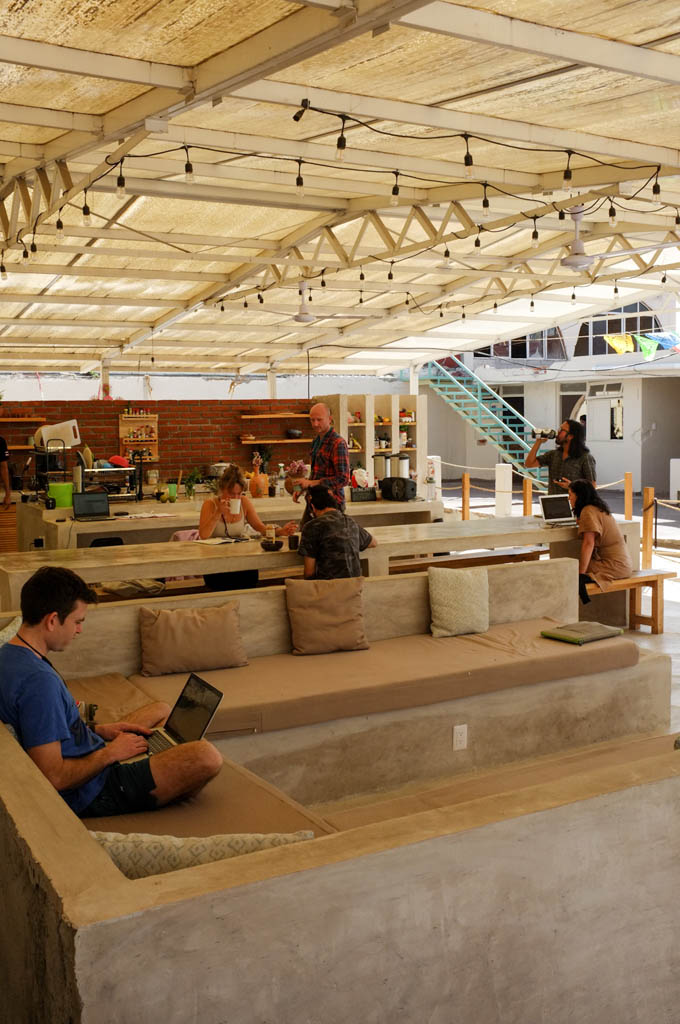
4. Have you had the opportunity to stay in some other coliving spaces or any similar type of accommodation before you decided to open your own place?
Laurens: No, I’ve never stayed in any coworking-coliving in my life. Still to this day, I have never stayed in another place like ours.
As a backpacker, I always dreamt of opening a hostel, so every time I traveled for those three years, I would write down things I liked because I knew I would want to open it in the future. All the inspiration I got is from my traveling.
5. In Europe, colivings are often in contact with one another to share the experience and support each other. Do you also have that industry support in the form of an ongoing relationship and exchange with other colivings (in Mexico or beyond)?
Laurens: We actually had a volunteer who stayed in Nine Coliving from Tenerife before coming to us, and she told me all about the coliving. I really liked all the things she was saying about the philosophy and how they work, so I wanted to reach out to them, and I did, but I haven’t received any response.
But I would love to have a conversation with other hosts to just share experiences and see what works at their place and what works at ours, and so on.
I really don’t see other hosts as competition. I think we should just make it easier for digital nomads to travel and find places like us so more people will do it.
And, in Mexico, it’s really difficult to find other coworking-coliving like us. There are a lot of chain companies that make it hard for establishments like ours to survive. But we are in contact with one coworking-coliving called Yuko. They have two places in Mexico City and one in Guadalajara. They’re a little bit smaller than us, but that’s the only one we talk to sometimes. And if our guest is going to Mexico City, we’ll always recommend Yuko and vice versa.
But for me, it would amazing to connect with other hosts in the future and just share experiences.
About Management
6. What type of management do you practice in your places? (External – have someone from the outside working as a day-to-day and community manager, or internal – your team living and working on the site providing service)
Laurens: We have two managers, one in Oaxaca and one in San Cristobal.
I also drive a lot between the two spaces. The drive is around 11 hours, so I think at the moment I have around 35,000 kilometers in less than a year in my car.
We also have six volunteers in Oaxaca and five in San Cristobal. Volunteers are very important to us.
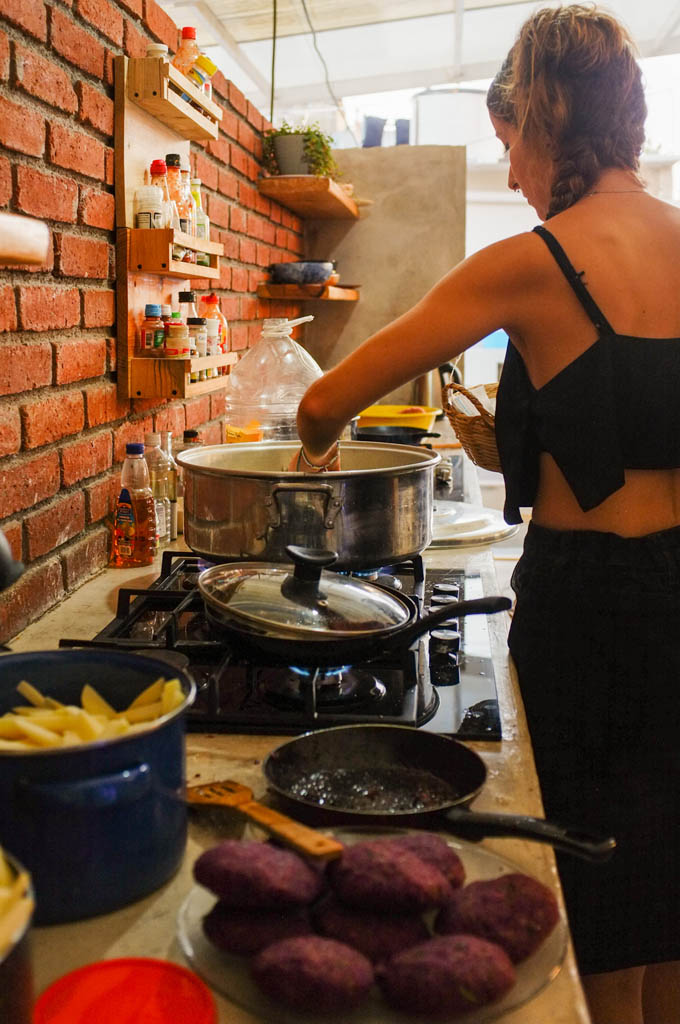
I believe that it is my job to keep the managers happy. The managers’ job is to keep the volunteers happy, and the volunteers’ job is to keep the guests happy. Our philosophy is that if I can’t keep my manager happy, then how do I expect them to keep the volunteers happy, and them to keep the guests happy?
That is why I have a really close relationship with both my managers, and we are actually really good friends.
I think that kind of relationship is really important, and, in general, I think just giving a little bit of love can go really far.
For example, six months ago, our cleaning lady’s daughter got hit by a car and broke her leg. So, we helped and took care of the hospital bill because we think it’s important to try and give back.
For us, it’s also really important to show them that we’re a family. If we have that philosophy and show it through practice, the guests see that our staff is happy, which makes them feel comfortable staying with us.
7. Can you tell me a little bit more about your volunteers?
Laurens: As I said, for us, the volunteers are the heart and the lungs of our company. The volunteers are the first people you see when you come in and the last people you see when you’re leaving. They are there throughout your whole stay and always there to support you.
Our volunteers do three to four shifts and one activity a week. That’s why we’re always looking for social personnel who like spending time with others and want to be out talking and connecting with people.
Of course, everybody needs to disconnect sometimes and stay in their room, and we don’t expect them not to, but we try to go for people who love spending time with our guests. And actually, most of our volunteers go above and beyond.
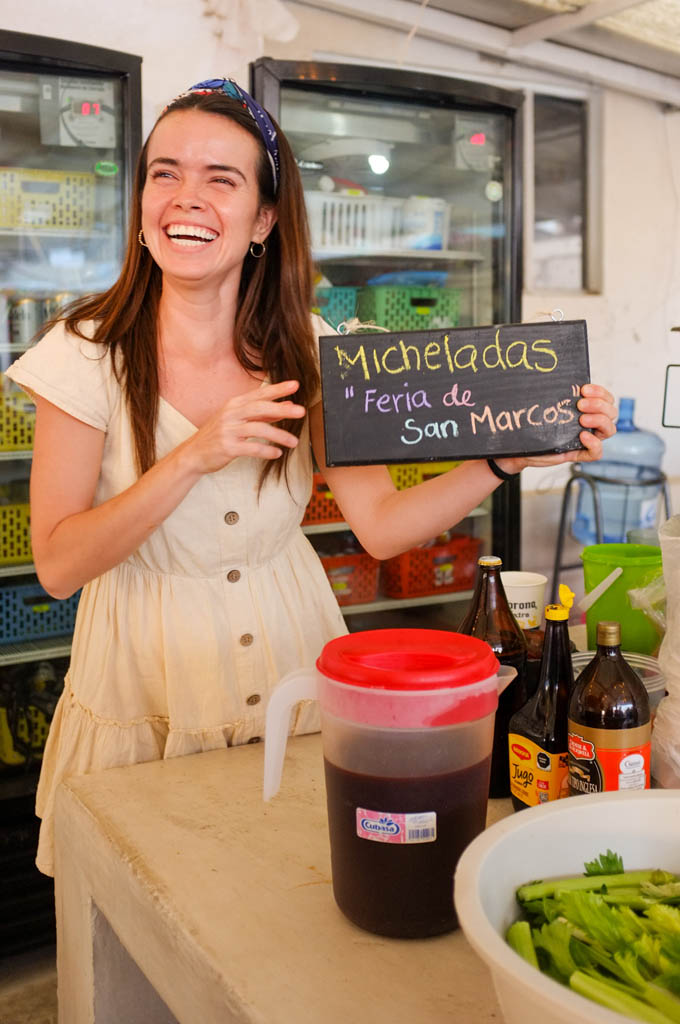
They care about the guests so much. If there is a problem, they’re there to resolve it, and they’re there to listen to you if you need it. If you had a bad meeting or an interview, our volunteers will remember and ask you about it, and try to talk to you about it.
We were very lucky with our volunteers so far. All of them took that part really well, and they set an example for our guests as well to be more open and feel more comfortable with one another.
8. How much are you involved in the community and daily activities of Co.404? (Are you part of the community or your role is strictly professional?)
Laurens: We are generally interested in our guests’ lives. It’s because we want them to feel at home and, at home, your family or best friend would ask you how your day was. So for the time you stay with us, we really try to be your family. We try to be your mom, dad, brother, sister, friend, or whatever you need.
Right now, my family and I live in Oaxaca. We used to live in San Cristobal but we moved houses five times in three years, so we’re nomads in a way as well.
Unfortunately, since we don’t allow children under 18 in Co404 for legal reasons, my baby can’t be there, so we don’t live in Co404. It is also hard to find a balance between personal and professional life when you live where you work. Our managers also don’t live in the Co404 anymore.
David lived in Co404 in San Cristobal for six months and another six in Oaxaca but he also moved out now. But for us as a family, it’s definitely easier to live outside.
We bought a huge school bus recently and it will arrive soon, so that means that my wife, my baby, and I will be able to comfortably travel between two places and live part-time on the bus and part-time in our house in Oaxaca., which will make things easier and more flexible.
9. What kind of activities are included for people who stay at Co.404?
Laurens: We do a lot of activities together.
We host family dinners, have yoga every morning and afternoon in Oaxaca, and have plenty of other activities that our volunteers organize, but the guests do as well. We have a big activity board and we always encourage our guests to put in something they’d like to do with others.
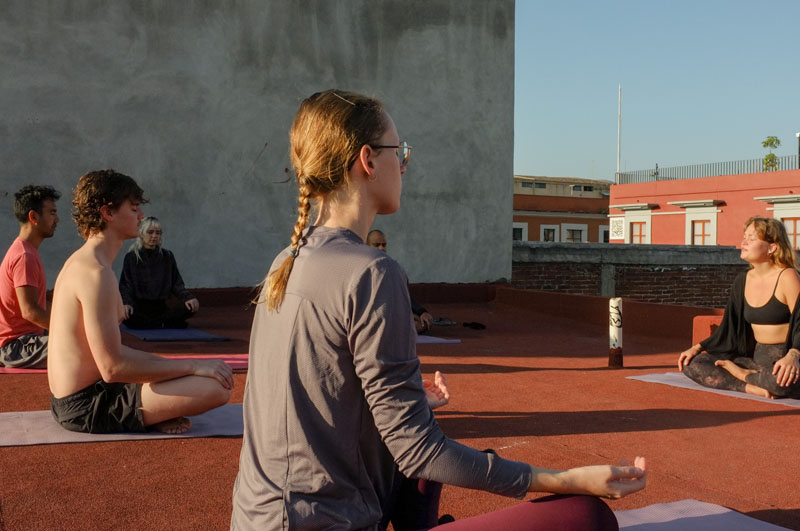
We also have a WhatsApp group. Everybody who checks in joins the WhatsApp group as well so they can stay updated on all the happenings. We post the activities in this group and have a system that motivates people to share the activity and repost it making it more visible and inspiring more people to join. It’s a great way to organize the group to do something together.
About Co.404 Visitors
10. What is the typical coliver profile in Co.404 (age, occupation, etc.)?
Laurens: The average age is from 25 to 30-something.
We had a guest recently who was around 60, she was also super open and a really lovely woman. We also occasionally have a few guests who are in their early twenties, so it’s diverse, but the average age is from 25 to around 35 or 40.
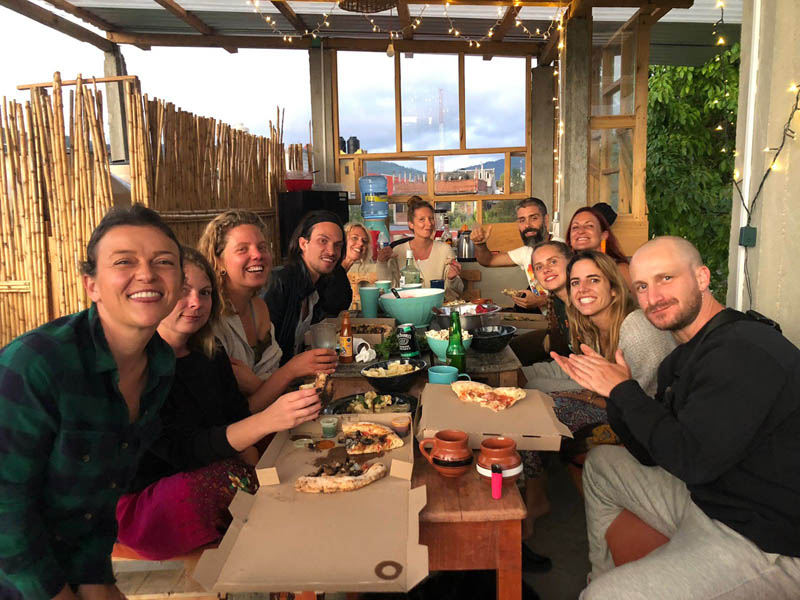
Job-wise, I think at the moment, we have two people working in tech, we have a lot of consultants, and around 30% of guests have their own company or similar. We also have people working in digital designs, as well as coders.
Nationality-wise, right now, in Oaxaca, we have a little bit more people from the United States because there’s a direct flight from Oaxaca to the United States. But, in general, considering both locations, I would say that we have around 50% of US folks and another 50% who are European.
Once in a while, we have someone for Asia or South America. For example, we have some Argentinians and Colombians, but, in general, I would say they make up about 5% of our guests.
From Europe, we mostly have French, Dutch, Lithuanian, German, and English people, and sometimes we have someone from the Scandinavian countries.
We also always have a few people from Eastern Europe as well because the rates are much more affordable than in Europe, I think.
11. Do you host locals?
Laurens: Not as many as we would like, as the digital nomad community in Mexico is smaller.
At this moment at Oaxaca, we don’t have any Mexican guests, which is really sad.
We are actively talking about giving back and thinking about how to do it and attract more locals. In the next coming years, hopefully we will find collaborations to increase our number of Mexican Digital Nomads.
In San Cristobal we have a bit more Mexicans because the city is a bit more affordable than Oaxaca, but, in general, we’re trying to find ways to reach more locals so we can give back to the local community, and also be able to share more about the local Mexican culture with our community.
12. What do you think is the ideal length of stay to fully emerge in the community and experience?
Laurens: We have a minimum stay of four nights, however, if you stay with us for a month, we offer a 40% discount.
We want to motivate our guests to stay at least a month because that is how you create communities. People don’t create deeper connections in three or five days. On the other hand, we know that for some people it’s a big step to come and book for a month, especially if they’ve never heard of coliving before, so that’s why we have that four-night minimum stay.
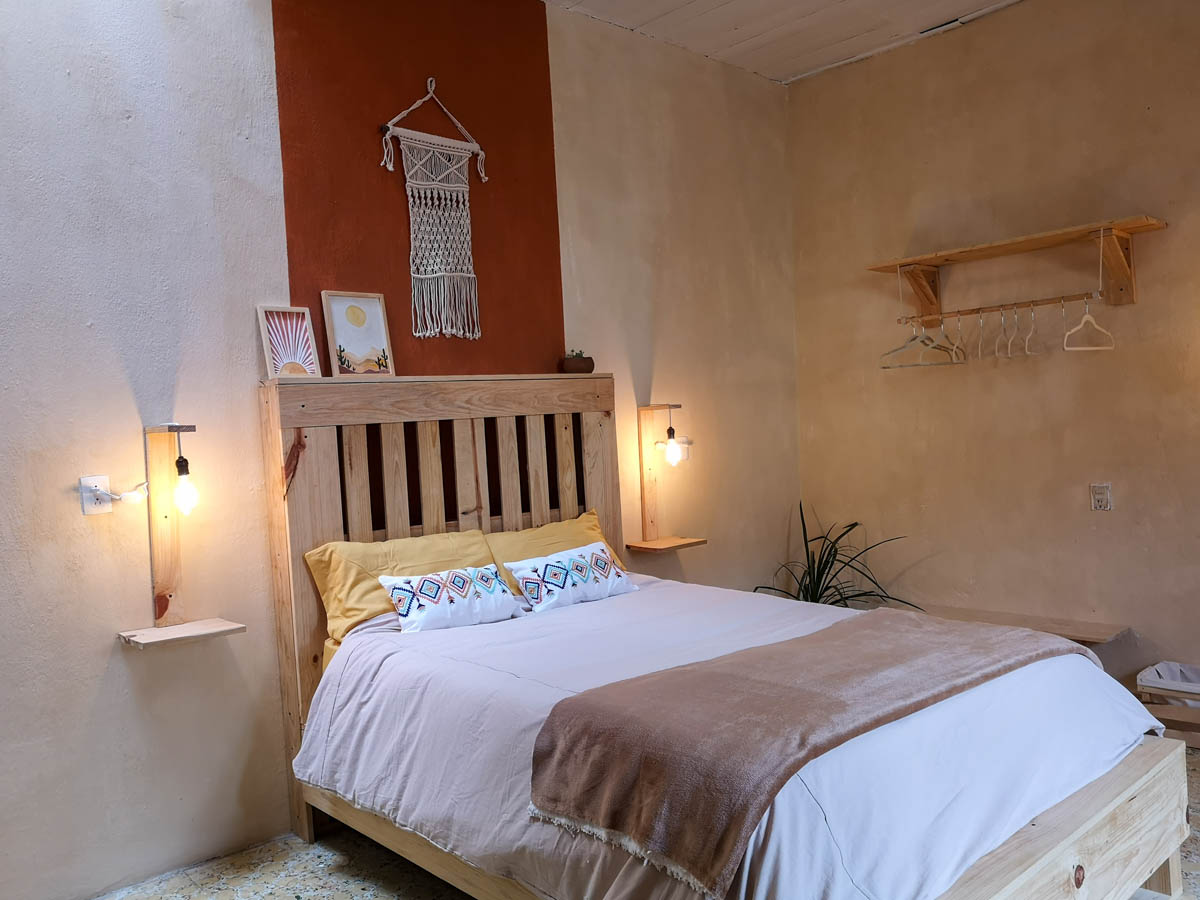
A lot of people, maybe 70%, extend their stay. They feel more comfortable booking only four nights because it gives them space to leave if they don’t like it and extend if they like it.
We are also flexible enough so people can extend. If someone comes for the four nights, he’s on a daily rate, but if he decides to extend his stay to a week or a month, we will gladly change his whole rate to the weekly or monthly one.
The average length of the stay in Co404 is between a month and two months. We’ve noticed people staying a bit longer in Oaxaca. In San Cristobal, the average is around a month, and in Oaxaca is more of a month and a half or even two months.
Generally, About Coliving Movement
13. Do you think coliving is only dedicated to a specific group of people such as freelancers, digital nomads, and remote workers, or you think there is a possibility for it to gain popularity beyond that group of people?
Laurens: I would say 99% of our guests are digital nomads, all working online or on personal projects.
I’m not saying no one else is welcome, but we do love it like that because it creates a unanimous vibe and atmosphere. Because everyone works, everyone understands how to act so they wouldn’t annoy others, and everyone can relate and have empathy.
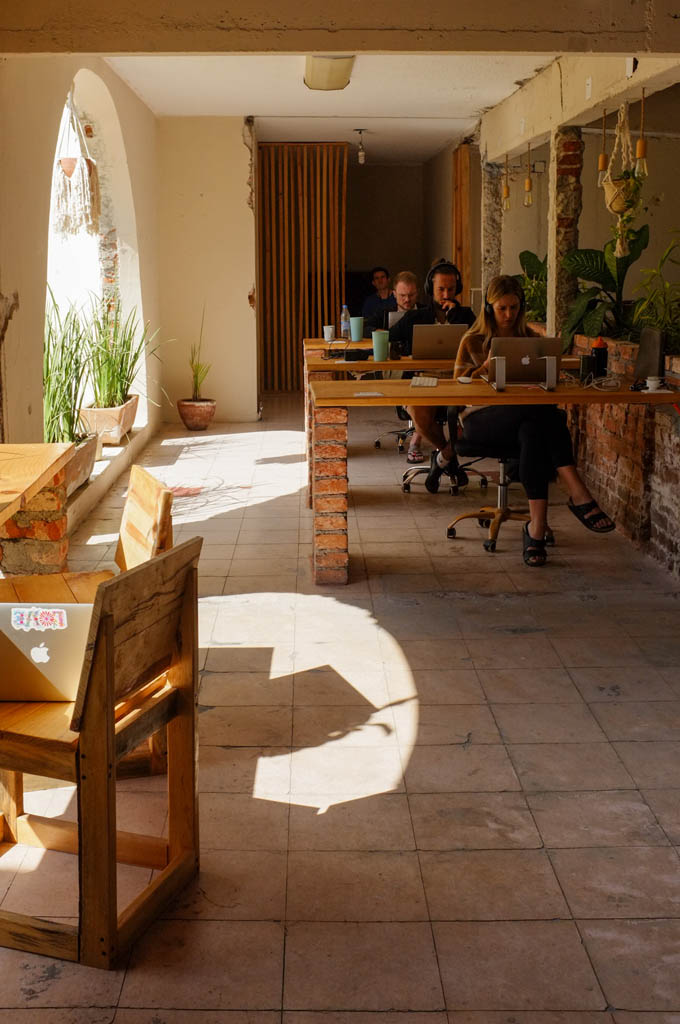
So, I do think that 99% of all of our guests are digital. Some work 70 hours per week and some work 10 hours a week. Either way, they understand each other and are respectful of each other and the rules.
For example, in our co-working space, we have absolute silence so everybody can focus. We have plenty of other spaces for conversation. If you need to have a meeting or talk on the phone, we have meeting booths for that and you don’t have to do it in the coworking. Things like this make people comfortable.
14. Do you think coworking is a crucial component of coliving and why?
Laurens: Yes, for our concept it is. I think there are a lot of different coworking and coliving concepts, and maybe for some, it is not, but for our concept, I think it is crucial.
The most budget we spend goes on the showers, the kitchen, and the coworking. Those are the things we don’t save money on.
Right now, we have 9 phone boots in Oaxaca and 4 in San Cristobal. Through San Cristobal, we learned 4 is not nearly enough. If we made five more here, they would all probably be full all the time too.
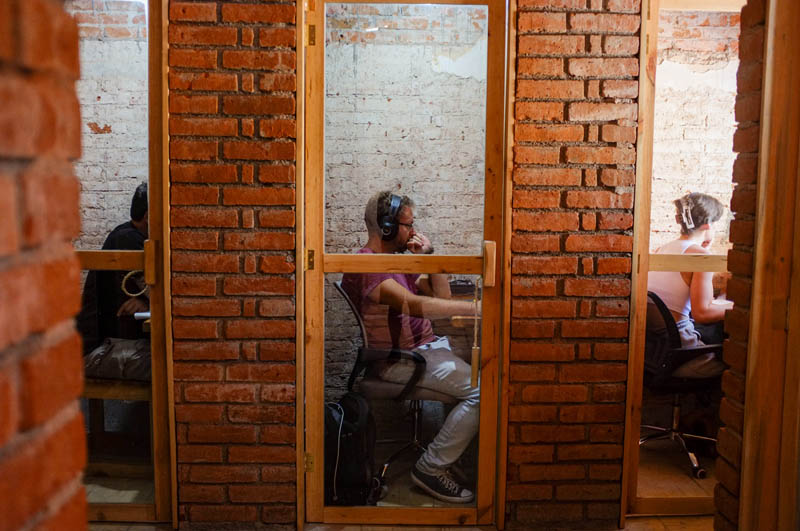
People often have a prejudgment that the internet here will not be good, and of course, it’s not as developed as in bigger cities, but that’s why we use two different providers. One is Starlink and the other one is a local provider, but both are fiber optic. So, if one goes down, there’s always a backup.
We really give a lot to provide a reliable working environment. For the coworking in Oaxaca, we spent a month designing it. We sat down almost every day for a month carefully designing the space. And we’re really happy with how it came out, people are using it every day.
We also have internet in all the rooms. I think we have around 8 different access points throughout the property, and we really picked them to be reliable instead of thinking about how to save money.
I think all of that is really important for our concept and for digital nomads who stay with us.
15. Lastly, how do you see Co.404 developing in the next few years? Do you have a vision of what it will grow into, or some aspirations and goals that you’ve set for it?
Laurens: My goal for Co404 is to become the best coworking-coliving in the world. I know this is impossible because there’s no way of measuring it, but I like that goal because it means that this is never a finished project.
There will always be room for improvement, and I never want to think “Now we’re good. We’re all set, and we don’t have to do anything else”.
I want to keep focusing on our strengths and the things we noticed work well.
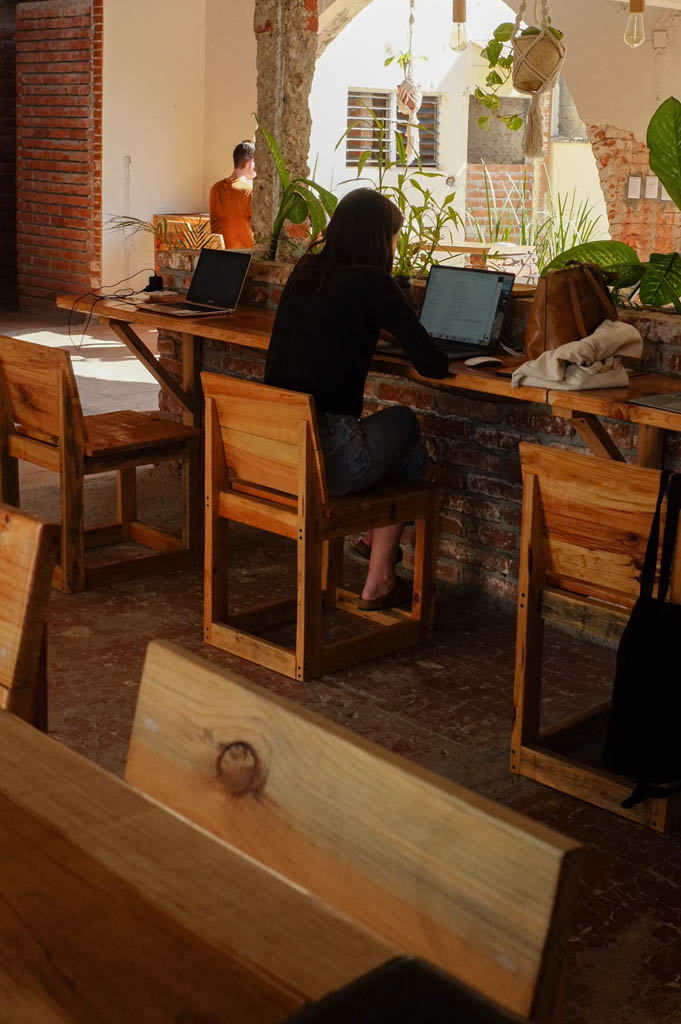
We want to build a pool in Oaxaca this year, and also have a gym.
We also want to start a podcast this year. There are a lot of interesting people and stories to share, so we thought a podcast would be a fun way to do it.
There are so many interesting topics happening daily, so maybe once a week, we could do a podcast for an hour and guests who want to join and talk about something, could. For example, how it is to travel as a couple or to be working in tech or traveling and being single. This could be a nice activity for our guests but also a nice value additon to our space.
